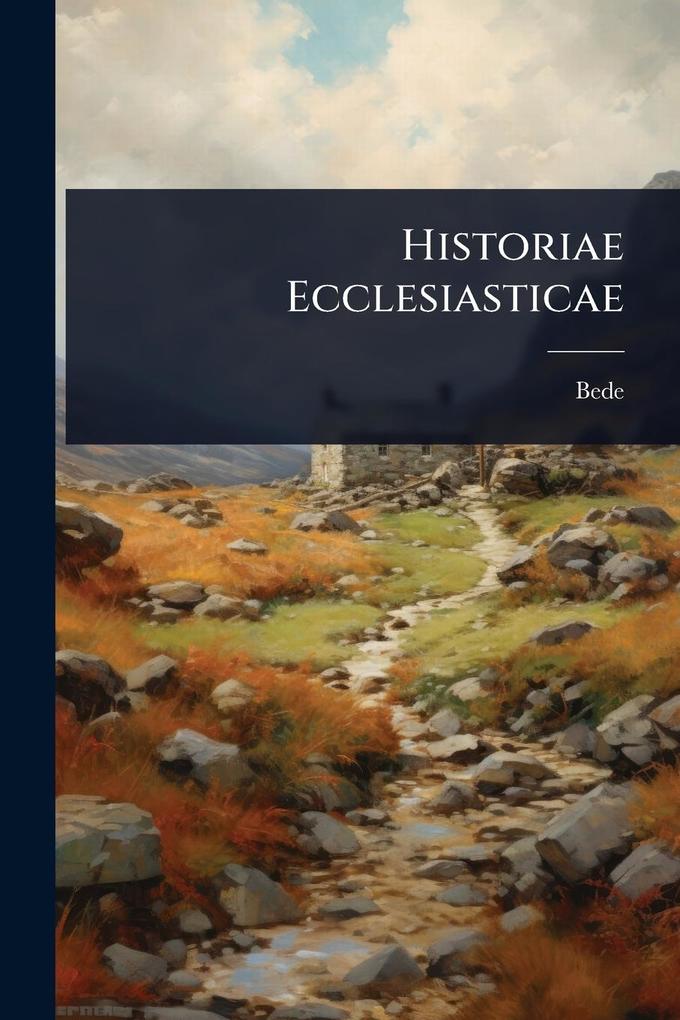
Zustellung: Mo, 14.07. - Fr, 18.07.
Versand in 2 Wochen
VersandkostenfreiBestellen & in Filiale abholen:
Historiae Ecclesiasticae Gentis Anglorum Libri III, IV, by Bede, is a cornerstone of early English historical writing. This volume presents Books III and IV of Bede's seminal work, offering invaluable insights into the religious, political, and social life of Anglo-Saxon England. Bede's meticulous scholarship and engaging narrative style provide a unique window into the conversion of the English to Christianity and the establishment of the Church in Britain.
Written in Latin and translated into English, this edition allows modern readers to explore the rich tapestry of events, personalities, and cultural transformations that shaped the early medieval period. Bede's historical account remains an essential resource for understanding the development of English identity and the profound influence of Christianity on its trajectory. "Historiae Ecclesiasticae" stands as a testament to the enduring power of historical narrative and its ability to illuminate the past for future generations.
This work has been selected by scholars as being culturally important, and is part of the knowledge base of civilization as we know it. This work was reproduced from the original artifact, and remains as true to the original work as possible. Therefore, you will see the original copyright references, library stamps (as most of these works have been housed in our most important libraries around the world), and other notations in the work.
This work is in the public domain in the United States of America, and possibly other nations. Within the United States, you may freely copy and distribute this work, as no entity (individual or corporate) has a copyright on the body of the work.
As a reproduction of a historical artifact, this work may contain missing or blurred pages, poor pictures, errant marks, etc. Scholars believe, and we concur, that this work is important enough to be preserved, reproduced, and made generally available to the public. We appreciate your support of the preservation process, and thank you for being an important part of keeping this knowledge alive and relevant.
Written in Latin and translated into English, this edition allows modern readers to explore the rich tapestry of events, personalities, and cultural transformations that shaped the early medieval period. Bede's historical account remains an essential resource for understanding the development of English identity and the profound influence of Christianity on its trajectory. "Historiae Ecclesiasticae" stands as a testament to the enduring power of historical narrative and its ability to illuminate the past for future generations.
This work has been selected by scholars as being culturally important, and is part of the knowledge base of civilization as we know it. This work was reproduced from the original artifact, and remains as true to the original work as possible. Therefore, you will see the original copyright references, library stamps (as most of these works have been housed in our most important libraries around the world), and other notations in the work.
This work is in the public domain in the United States of America, and possibly other nations. Within the United States, you may freely copy and distribute this work, as no entity (individual or corporate) has a copyright on the body of the work.
As a reproduction of a historical artifact, this work may contain missing or blurred pages, poor pictures, errant marks, etc. Scholars believe, and we concur, that this work is important enough to be preserved, reproduced, and made generally available to the public. We appreciate your support of the preservation process, and thank you for being an important part of keeping this knowledge alive and relevant.
Produktdetails
Erscheinungsdatum
22. Mai 2025
Sprache
englisch
Seitenanzahl
508
Autor/Autorin
Bede
Verlag/Hersteller
Produktart
kartoniert
Gewicht
703 g
Größe (L/B/H)
234/156/26 mm
ISBN
9781023622912
Bewertungen
0 Bewertungen
Es wurden noch keine Bewertungen abgegeben. Schreiben Sie die erste Bewertung zu "Historiae Ecclesiasticae" und helfen Sie damit anderen bei der Kaufentscheidung.









